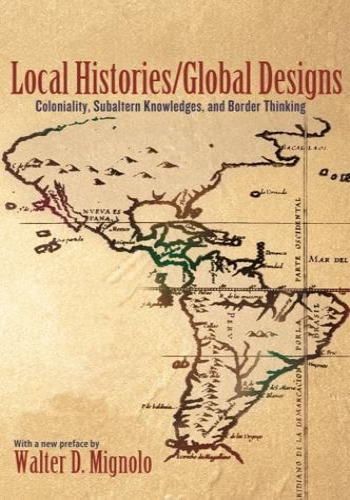Local Histories/Global Designs is an extended argument about the "coloniality" of power by one of the most innovative Latin American and Latino scholars. In a shrinking world where sharp dichotomies, such as East/West and developing/developed, blur and shift, Walter Mignolo points to the inadequacy of current practices in the social sciences and area studies. He explores the crucial notion of "colonial difference" in the study of the modern colonial world and traces the emergence of an epistemic shift, which he calls "border thinking." Further, he expands the horizons of those debates already under way in postcolonial studies of Asia and Africa by dwelling in the genealogy of thoughts of South/Central America, the Caribbean, and Latino/as in the United States. His concept of "border gnosis," or sensing and knowing by dwelling in imperial/colonial borderlands, counters the tendency of occidentalist perspectives to manage, and thus limit, understanding.
In a new preface that discusses Local Histories/Global Designs as a dialogue with Hegel's Philosophy of History, Mignolo connects his argument with the unfolding of history in the first decade of the twenty-first century.







